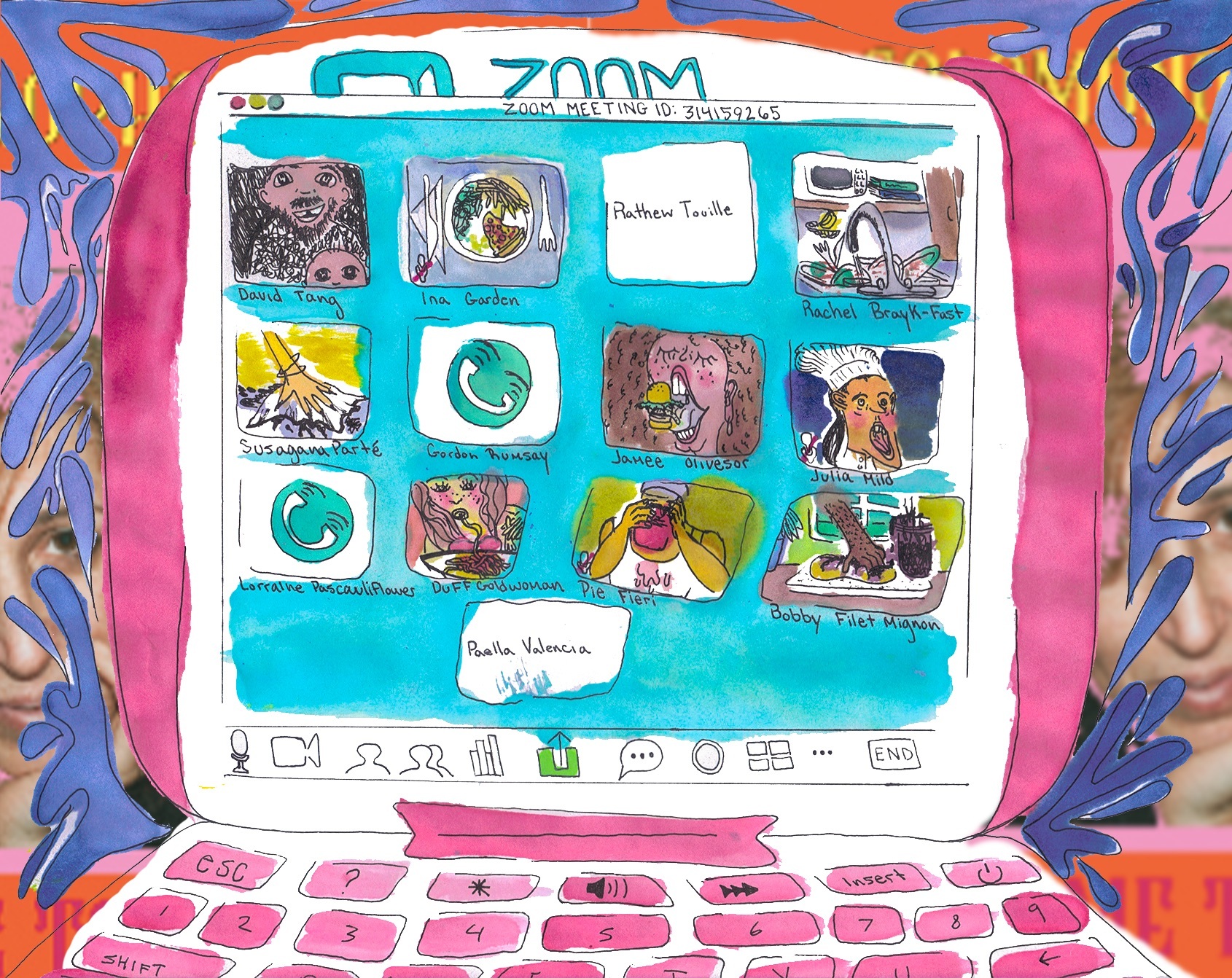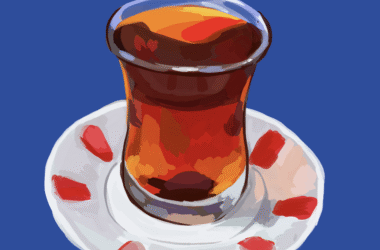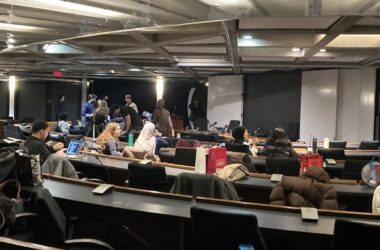On a hot July evening, the flushed faces, happy chatter, and sound of oil snapping in pans made the Community Cooks Co-operative’s (CCCoop) Zoom session feel almost like a real kitchen. This volunteer group has weekly virtual meetings to catch up, meet new people, and exchange cooking advice, all while preparing a bulk donation of meals for Resilience Montreal, a non-profit day shelter.
CCCoop is a mutual-aid organization that serves a dual role acting as an intermediary between its volunteers and Resilience Montreal while also providing community members a socially distanced way to stay connected.
Located in Cabot Square, Resilience Montreal facilitates a gathering space for Indigenous Peoples, especially Inuit community members. The shelter offers meals, sleeping space, clean laundry, and community support. Resilience Montreal has a standing call for donations of food and essentials, including socks, blankets, and hygiene products.
Tomo Newton, a second-year master’s student in Music at McGill, founded CCCoop in response to the COVID-19 pandemic.
“A few weeks into quarantine, when everything was really shut down, I was walking on Sherbrooke and seeing the same Indigenous Peoples on the streets, really exposed to everything,” Newton said. “I realized that while my life had stopped […] and I had all the resources I needed to be safe and sheltered, the people that did not have that before still don’t have that.”
According to recent statistics from the Quebec government, there are more than 3,100 people living on the streets of Montreal at any given time. In 2018, Indigenous people made up 0.6 per cent of the city’s population, but 12 per cent of its unhoused people. This mirrors circumstances across Canada, where Indigenous people are four per cent of the overall population, but 28 per cent of the unhoused population.
Since April 2020, CCCoop has coordinated 18 consecutive weekly cooking sessions, each with 10 to 20 volunteer participants. Newton explained that all are welcome to volunteer, and that CCCoop is currently on the lookout for more help.
The McGill Tribune joined a CCCoop cooking session where Newton pointed out that her social circle had actually expanded during the lockdown, as her initiative helped her meet new people.
Although it is still growing, Newton believes that CCCoop is contributing to larger social movements.
“With all these social movements taking place, we are trying to be a part of them,” Newton said, citing the Black Lives Matter and Indigenous sovereignty movements. “What we’re trying to do is create some sort of bridge between these communities. A lot of [the volunteers] are students [and] a lot of us live in the Plateau, which is pretty far away from Cabot Square where this work is being done.”
Some forms of political action focus on pushing the government to respond to social problems, while other groups organize to address those problems themselves. CCCoop takes the latter approach through mutual aid.
“Pressing for government action is what needs to be done,” Newton said. “I’m not going to say [our work] is the definite solution, but what we’re doing is tending to immediate needs.”
CCCoop volunteer Jeremy Tatar, a third-year McGill doctoral student in Music, shared how volunteering has helped him feel fulfilled during quarantine.
“At a time when people are socially distancing and networks are contracting, it’s so amazing to meet people and work together in this common cause. That’s been a huge benefit for me.”
The future is uncertain for CCCoop, but Newton is not worried. An openness to change has always defined the co-operative, and she expects the strength and creativity of the group to push their work beyond the fall.
“I just found myself with a lot of time on my hands, and this was a way to help out and give back,” Newton said. “Anyone can do this.”
To get involved with the co-operative, visit their Facebook page for more details.







